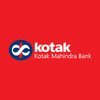Senior Manager Credit
10+ Senior Manager Credit Interview Questions and Answers

Asked in Tata Capital

Q. How many Files do you handle per month and what is average TAT
I handle an average of 200 credit files per month with a TAT of 15 days.
I handle around 200 credit files per month
The average TAT for processing a credit file is 15 days
I ensure that all files are processed within the given TAT to maintain efficiency
I prioritize urgent files and communicate with clients to resolve any issues that may cause delays

Asked in Tata Capital

Q. What is the delinquency ratio of your zone and your company?
The delinquency ratio of my Zone is 2% and of my Company is 1.5%.
The delinquency ratio is a measure of the percentage of loans that are past due.
My Zone has a slightly higher delinquency ratio than the Company average.
We are actively working to reduce delinquency through targeted outreach and support for struggling borrowers.
Senior Manager Credit Interview Questions and Answers for Freshers

Asked in Tata Capital

Q. What is more important, property or income?
Both property and income are important for credit assessment.
Property provides collateral and security for the loan.
Income determines the borrower's ability to repay the loan.
Both factors are considered in credit scoring models.
The importance of each factor may vary depending on the type of loan and lender's policies.
For example, a mortgage lender may place more emphasis on property value, while a personal loan lender may focus more on income and credit history.

Asked in Brickwork Ratings

Q. How to calculate dscr? How do we evaluate a term loan?
DSCR is calculated by dividing the net operating income by the total debt service. Term loans are evaluated based on various factors such as creditworthiness, collateral, and repayment ability.
DSCR = Net Operating Income / Total Debt Service
Evaluate creditworthiness of borrower
Assess collateral offered for the loan
Analyze repayment ability of borrower
Consider interest rates and loan terms
Compare loan to industry standards and benchmarks

Asked in PwC

Q. What is the difference between a corporate and a partnership firm?
A corporate firm is a legal entity separate from its owners, while a partnership firm is owned and operated by two or more individuals.
Corporate firms have limited liability, while partnership firms have unlimited liability.
Corporate firms issue shares to raise capital, while partnership firms rely on the personal funds of the partners.
Corporate firms are subject to more complex legal and regulatory requirements, while partnership firms have fewer formalities.
Corporate firms ...read more

Asked in Cholamandalam Investment & Finance

Q. How can you generate free income for your branch when offering a job?
Generating free income for a branch involves strategic initiatives to enhance revenue without direct costs.
Implement cross-selling strategies: Train staff to identify opportunities for selling additional products to existing customers.
Leverage partnerships: Collaborate with local businesses to offer exclusive deals, generating referral fees.
Enhance customer engagement: Host financial literacy workshops that attract new clients and increase branch visibility.
Utilize digital ma...read more
Senior Manager Credit Jobs




Asked in Tata Capital

Q. How do you analyze banking?
Banking analysis involves evaluating financial statements, creditworthiness, risk management, and market trends.
Evaluate financial statements to determine the bank's profitability, liquidity, and solvency
Assess creditworthiness of borrowers to minimize loan defaults
Analyze risk management strategies to ensure the bank is adequately protected
Monitor market trends to identify potential opportunities or threats
Use data analytics and modeling to make informed decisions

Asked in HDFC Bank

Q. What is the market position of auto loans during COVID-19?
The market position of auto loans in COVID-19 is uncertain and has been impacted by economic factors.
Auto loan demand has decreased due to economic uncertainty and job losses.
Lenders have tightened their credit standards and increased interest rates.
Delinquency rates on auto loans have increased.
Government stimulus packages and relief programs have provided some support to the auto loan market.
Online car sales and contactless financing options have gained popularity.
Used car ...read more
Share interview questions and help millions of jobseekers 🌟


Asked in Jio Payments Bank

Q. How can we start coding?
To start coding, you need to have a clear understanding of the programming language and tools you want to use.
Choose a programming language that suits your needs and goals.
Set up a development environment with the necessary tools and software.
Learn the basics of the chosen programming language, including syntax and data structures.
Start with simple coding exercises or tutorials to practice and build your skills.
Join coding communities or forums to seek help and learn from exp...read more

Asked in Cholamandalam Investment & Finance

Q. What is your strategy for achieving targets?
My strategy for achieving targets involves setting clear goals, fostering teamwork, and leveraging data-driven insights.
Set SMART goals: Specific, Measurable, Achievable, Relevant, Time-bound. For example, increase loan approval rates by 15% in Q2.
Foster collaboration: Encourage open communication among team members to share insights and strategies for overcoming challenges.
Utilize data analytics: Analyze credit risk data to identify trends and make informed decisions, such a...read more

Asked in Kotak Mahindra Bank

Q. What are the important balance sheet and P&L items to look for?
Key balance sheet and P&L items reveal financial health and operational efficiency.
Assets: Look for current assets like cash and receivables, indicating liquidity.
Liabilities: Assess current liabilities to understand short-term obligations.
Equity: Analyze retained earnings for profitability trends over time.
Revenue: Examine revenue growth rates to gauge business expansion.
Expenses: Review operating expenses for cost management efficiency.
Net Income: Check net income trends to...read more

Asked in Punjab National Bank

Q. How do you calculate term loans, especially the Debt Service Coverage Ratio (DSCR)?
DSCR measures a borrower's ability to repay debt using operating income.
DSCR (Debt Service Coverage Ratio) = Net Operating Income / Total Debt Service.
A DSCR > 1 indicates sufficient income to cover debt obligations.
Example: If NOI is $200,000 and debt service is $150,000, DSCR = 200,000 / 150,000 = 1.33.
Lenders typically prefer a DSCR of at least 1.2 for term loans.
A lower DSCR may indicate higher risk for lenders.

Asked in Unicharm

Q. What is your experience in the market?
I have extensive experience in market analysis, risk assessment, and credit evaluation in various sectors.
Conducted market research to identify trends and assess creditworthiness of potential clients.
Developed risk assessment models that improved loan approval rates by 15%.
Collaborated with cross-functional teams to align credit policies with market conditions.
Utilized data analytics tools to forecast market shifts and adjust credit strategies accordingly.
Led a team that succ...read more

Asked in HDFC Bank

Q. What is the Debt-to-Equity Ratio?
Debt Equity Ratio is a financial ratio that indicates the proportion of a company's debt to its equity.
Debt Equity Ratio = Total Debt / Total Equity
It shows how much debt a company is using to finance its assets relative to the value of shareholders' equity.
A high Debt Equity Ratio indicates higher financial risk, while a low ratio indicates lower risk.
For example, if a company has $1 million in debt and $2 million in equity, the Debt Equity Ratio would be 0.5.

Asked in Cholamandalam Investment & Finance

Q. Give market reference
Market reference involves benchmarking credit practices against industry standards and competitor performance.
Benchmarking against industry standards helps assess credit risk management effectiveness.
Using credit rating agencies' reports to gauge market trends and borrower creditworthiness.
Analyzing competitor credit policies to identify best practices and areas for improvement.
Utilizing market data to adjust lending rates and terms based on economic conditions.

Asked in Senco Gold

Q. Tell me about yourself.
Experienced Senior Manager in Credit with a strong background in risk assessment and financial analysis, driving strategic growth.
Over 10 years of experience in credit management and risk assessment.
Led a team that improved credit approval processes, reducing turnaround time by 30%.
Implemented data-driven strategies that increased portfolio performance by 15%.
Strong analytical skills, demonstrated by successful forecasting of credit trends.
Collaborated with cross-functional t...read more
Interview Questions of Similar Designations
Interview Experiences of Popular Companies








Reviews
Interviews
Salaries
Users

















